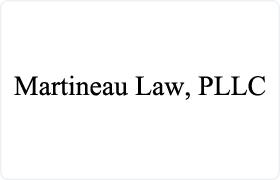 Goodyear Estate Lawyers, Arizona
Goodyear Estate Lawyers, Arizona
Sponsored Law Firm
-
 x
x

Click For More Info:
-
Martineau Law, PLLC
4445 E Holmes Ave Suite 106 Mesa, AZ 85206» view mapAccident & Injury, Estate, Nursing Home, Immigration Proudly Serving Maricopa County
Joseph Martineau has a track record of successful cases.
800-935-4021
Sponsored Lawyers
1-10 of 37 matches
Estate, Wills & Probate, Trusts, Estate Planning, Wills
Andre Pennington is an accomplished Arizona, federal and military attorney that concentrates his practice on estate planning, wills, trusts, probate and trust administration and litigation. What makes Andre unique is that he has specialized estate planning training and experience from his time as an attorney for the United States Air Force, but also has extensive trial experience with over 75 jury trials to his credit at the state, military and federal level. This blend makes him uniquely qualified and able to effectively navigate the waters of your estate plan and administration. Since 2011, Andre has lived in Surprise, Arizona. He is married to his stunning wife, Amanda, and has six young children, two sons and four daughters. As a father, he rarely misses a family obligation and believes that family is one of the greatest gifts a person can receive and that protecting their future is of paramount importance. With that sentiment, he uses his years of estate planning, trial experience and expertise to guide, navigate, and protect your family’s interests in their most difficult time. He grew up in Southern California, graduating from California State University, Fullerton, and Loyola Law School, Los Angeles. He then started his legal career in 2006, as a trial attorney within the Colorado state courts. In 2007, he joined the United States Air Force and for over four years engaged in estate planning and trial work. During that time, he was recognized by leadership as being within the top five percent of trial attorneys in the Air Force. With a desire to have a more stable home life, he left active duty and transferred to the Air Force Reserves, where he is the rank of Major, and has been a trial advocacy instructor, government appellate counsel and estate planning attorney. Until 2014, Andre practiced as a federal trial attorney for the District of Arizona, handling the highest level of federal cases; when he left to take his current position and to go into private practice as a full-time estate planning, wills, trusts, and probate attorney. Andre has been recognized with numerous honors and awards that include voted Best Attorney in Sun City West by the Daily Independent 2021, selected as Litigator of the Year 2021 by the American Institute of Trial Lawyers, Lawyers of Distinction 2021, Best Attorneys of America 2021, Elite Lawyers 2021, Best Probate Attorneys in Surprise, Peoria and Goodyear by Expertise.com. Andre founded residential homes dedicated to the well-being of foster children; he was appointed as a part-time Judge for the Maricopa County Justice Courts (2015-2017); and co-founded and is a Director for Arizona’s Children Coalition. Andre is a purple belt in Brazilian Jiu Jitsu; and he is a Coach and lifetime member at De Boa Jiu Jitsu Academy in Surprise, Arizona.
(more)Accident & Injury, Criminal, Estate, Divorce & Family Law, Litigation
Zachary Mushkatel discovered his affinity for the law by chance. As a political science major at the University of Arizona, he first aspired to become a professor. But an unexpected invitation to participate on a mock trial team at the university encouraged him to turn his competitive spirit and drive to help others into a legal career. “The law is about representing the client’s best interest, being able to think on your feet, and being a master of language and persuasion,” he says. “It just felt like home to me.” Mushkatel graduated from the University of Minnesota Law School in 2004 and has gone on to build a thriving law firm representing clients in the Sun Cities, Northwest Valley and the Phoenix metro region. Mushkatel brings a diverse array of legal expertise to his practice at Mushkatel, Robbins & Becker, PLLC. He started as a public defender before joining the law office of Henry Florence and Sherry Bell to work as a criminal defense attorney. In 2008, he joined forces with Mathis Becker to form Mushkatel and Becker. Throughout that period, he gained experience working in various practice areas, including personal injury, estate litigation, estate planning, guardianship and conservatorship work, probate, corporate litigation, real estate, and various civil matters. Mushkatel’s cross-disciplinary background provides for comprehensive counsel to clients to explore all possible legal avenues. Today, Mushkatel assists individuals throughout the Valley in personal injury, estate and civil litigation matters. Providing exceptional client service and producing results are his top priorities. “My job is to provide a lifeline to clients who feel stuck or helpless and to go to bat for them,” he says. Several of Mushkatel’s personal injury cases have resolved in excess of one-million dollars. He is the recipient of the 2020 Top-Rated Lawyer Award from Avvo and has been named a “Top 40 Under 40” by The National Trial Lawyers and a Premier Attorney by The National Academy of Jurisprudence. For Mushkatel, delivering maximum results does not mean sacrificing personal relationships. Success comes from taking the time to get to know each client’s individual needs and tailoring the legal approach to match his or her goals. Building those relationships results from creating an unpretentious yet professional environment that puts people at ease. “Most law firms run like businesses,” says Mushkatel. “The problem is that a business’s interests may not always run in stride with a client’s best interests. Our clients are our Number One priority, and the way we show it is by sitting back and listening quite a bit.” Community service is important to Mushkatel and every attorney the firm. Each lawyer is required to worki on at least two pro bono cases at all times. Mushkatel believes those services should be provided not for the accolades or to meet State Bar requirements, but simply because helping others is fundamental to the legal profession. Mushkatel is licensed in the State of Arizona, the Federal District Court of Arizona and is admitted to practice before the U.S. Court of Appeals for the Ninth Circuit. He is on the board and a faculty member for the Arizona College of Trial Advocacy, a program of the State Bar of Arizona’s Trial Practice Section. He is a past president and a member of the West Maricopa County Bar Association and a former member of the Board of Directors of the Surprise Regional Chamber of Commerce and the Sun Valley Lodge. A former semi-professional baseball pitcher, Mushkatel has coached his son’s Little League team for several years. When he is not working, he enjoys golf and spending time with his family.Zachary Mushkatel discovered his affinity for the law by chance. As a political science major at the University of Arizona, he first aspired to become a professor. But an unexpected invitation to participate on a mock trial team at the university encouraged him to turn his competitive spirit and drive to help others into a legal career. “The law is about representing the client’s best interest, being able to think on your feet, and being a master of language and persuasion,” he says. “It just felt like home to me.” Mushkatel graduated from the University of Minnesota Law School in 2004 and has gone on to build a thriving law firm representing clients in the Sun Cities, Northwest Valley and the Phoenix metro region. Mushkatel brings a diverse array of legal expertise to his practice at Mushkatel, Robbins & Becker, PLLC. He started as a public defender before joining the law office of Henry Florence and Sherry Bell to work as a criminal defense attorney. In 2008, he joined forces with Mathis Becker to form Mushkatel and Becker. Throughout that period, he gained experience working in various practice areas, including personal injury, estate litigation, estate planning, guardianship and conservatorship work, probate, corporate litigation, real estate, and various civil matters. Mushkatel’s cross-disciplinary background provides for comprehensive counsel to clients to explore all possible legal avenues. Today, Mushkatel assists individuals throughout the Valley in personal injury, estate and civil litigation matters. Providing exceptional client service and producing results are his top priorities. “My job is to provide a lifeline to clients who feel stuck or helpless and to go to bat for them,” he says. Several of Mushkatel’s personal injury cases have resolved in excess of one-million dollars. He is the recipient of the 2020 Top-Rated Lawyer Award from Avvo and has been named a “Top 40 Under 40” by The National Trial Lawyers and a Premier Attorney by The National Academy of Jurisprudence. For Mushkatel, delivering maximum results does not mean sacrificing personal relationships. Success comes from taking the time to get to know each client’s individual needs and tailoring the legal approach to match his or her goals. Building those relationships results from creating an unpretentious yet professional environment that puts people at ease. “Most law firms run like businesses,” says Mushkatel. “The problem is that a business’s interests may not always run in stride with a client’s best interests. Our clients are our Number One priority, and the way we show it is by sitting back and listening quite a bit.” Community service is important to Mushkatel and every attorney the firm. Each lawyer is required to worki on at least two pro bono cases at all times. Mushkatel believes those services should be provided not for the accolades or to meet State Bar requirements, but simply because helping others is fundamental to the legal profession. Mushkatel is licensed in the State of Arizona, the Federal District Court of Arizona and is admitted to practice before the U.S. Court of Appeals for the Ninth Circuit. He is on the board and a faculty member for the Arizona College of Trial Advocacy, a program of the State Bar of Arizona’s Trial Practice Section. He is a past president and a member of the West Maricopa County Bar Association and a former member of the Board of Directors of the Surprise Regional Chamber of Commerce and the Sun Valley Lodge. A former semi-professional baseball pitcher, Mushkatel has coached his son’s Little League team for several years. When he is not working, he enjoys golf and spending time with his family.
(more)Divorce & Family Law, Criminal, Real Estate, Estate
David Mize is a dedicated attorney with a robust background in civil litigation and criminal defense. Graduating from Ohio Northern University Pettit College of Law, David was admitted to the bar in August 2013 and has since built a reputation for professionalism, extensive legal knowledge, and successful case outcomes. In the realm of civil litigation, David has actively participated in both State and Federal courts, handling a diverse array of cases ranging from personal injury matters to complex business disputes. His experience includes navigating business-to-business contract disputes and consumer versus business contractual conflicts with precision and a focus on achieving favorable resolutions for clients. In the criminal defense sphere, David has demonstrated proficiency in handling felony cases of various complexities, including juvenile matters, homicides, financial crimes, and drug offenses. His strategic approach and courtroom acumen have consistently yielded positive results for clients facing serious legal challenges. Moreover, David has extensive experience in family law, having successfully managed dissolutions of marriage, custody disputes, and high-stakes litigation involving spousal maintenance, child support, and high net worth divorce cases. His ability to navigate emotionally charged family law matters with sensitivity while advocating vigorously for his clients’ interests sets him apart in his field. Throughout his career, David has established a track record of achieving favorable outcomes through meticulous preparation, strong advocacy, and a commitment to delivering personalized legal solutions tailored to each client’s unique circumstances. He is known for their integrity, professionalism, and unwavering dedication to securing the best possible results for those he represents.
(more)



 Joseph Martineau Mesa, AZ
Joseph Martineau Mesa, AZ Practice AreasExpertise
Practice AreasExpertise



